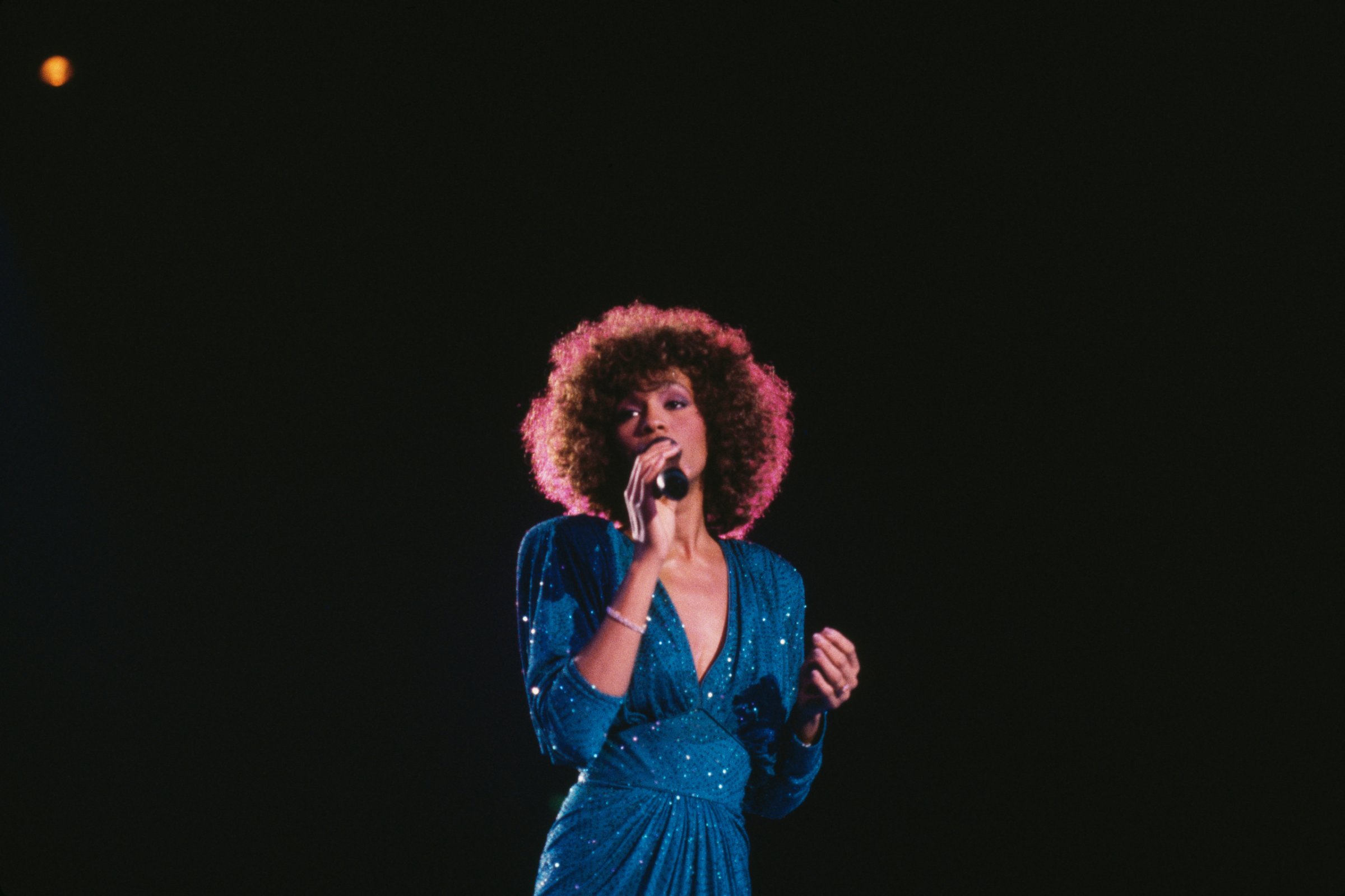
In a recent interview promoting his soon-to-be released memoir, musical artist Bobby Brown disclosed that his ex-wife, the late Whitney Houston, was “bisexual,” and claimed that the longstanding rumors about her romantic partnership with her best friend, Robyn Crawford, were true. “We were married for 14 years,” he told Us Magazine. “There are some things we talked about that were personal to us.” Crawford has never confirmed she had a romantic relationship with Whitney.
As an out-and-proud black queer femme and Whitney fan, I want to say to Brown: Back off and keep Houston’s secrets to yourself. It’s never the job of cisgender heterosexual men to publicly label black women’s sexuality, queer or otherwise. Doing so continues black patriarchal privilege.
Brown suggests that the homophobic religious and cultural context in which Houston lived and died is a toxic one: “I really feel that if Robyn was accepted into Whitney’s life, Whitney would still be alive today. That’s an important point. But it wasn’t his to make.
If Crawford wanted to speak about a romantic relationship with Houston, as a black queer woman discussing her own sexuality on her own terms, it could be very powerful. But neither Houston nor Crawford made that choice.
In an interview on the eve of her marriage to Brown, Houston spoke of her love for Crawford without speaking of sexuality. “Robyn and I have been friends since we were kids. For so many years,” she said. “I’d rather have a friend, somebody that likes and loves me for me. I’d rather have the companionship, someone I can trust.” And in her obituary for Houston, Crawford said: “I have never spoken about her until now. And she knew I wouldn’t. She was a loyal friend, and she knew I was never going to be disloyal to her.”
In this discretion, Houston and Crawford join other powerful black women in the entertainment industry who’ve been deliberate about when, how, and whether they label their sexuality. Queen Latifah, Wanda Sykes and Robin Roberts were public figures for decades before they identified as lesbian in the media. Raven-Symone, when asked about her partnership with AzMarie Livingston, said: “I don’t want to be labeled gay, I want to be labeled a human who loves humans. I’m tired of being labeled.”
The importance of black women resisting sexual labels shouldn’t be underestimated.
The choice of a black woman to keep her sexual life private must be understood as a feminist political act. For centuries we had no right to sexual privacy. Under chattel slavery, our sexual and reproductive bodies were someone else’s property and could be displayed on the auction block or in the master’s bedroom at any time. We’ve learned to value sexual privacy, then, as a luxury our foremothers never had.
Even into the 21st century, when details of black women’s sexual lives are disclosed, we often face repercussions and judgments that white women don’t. When Katy Perry sang “I Kissed A Girl,” her song became wildly popular. When Rihanna suggested she could go lesbian for Perry, one writer compared her to an animal. Black women’s sexuality is too often imagined as animalistic.
If we want to keep who and how we desire to ourselves, who can blame us? And who’s Brown—or any man who moves through the world with cisgender heterosexual privilege—to second-guess us?
Brown’s memoir will be sure to bring in profits and sell to many Houston fans like myself. In the process, it will likely spark many necessary conversations about homophobia and black queer desire. But if black straight cis-men really want to support their black queer sisters, speaking for us about our sexualities, ultimately, isn’t empowering. I hope black queers will use this opening to the best possible good, but without forgetting: our stories are ours and ours alone to tell, in death as in life.
More Must-Reads from TIME
- Donald Trump Is TIME's 2024 Person of the Year
- Why We Chose Trump as Person of the Year
- Is Intermittent Fasting Good or Bad for You?
- The 100 Must-Read Books of 2024
- The 20 Best Christmas TV Episodes
- Column: If Optimism Feels Ridiculous Now, Try Hope
- The Future of Climate Action Is Trade Policy
- Merle Bombardieri Is Helping People Make the Baby Decision
Contact us at letters@time.com